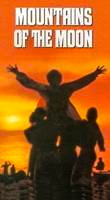
| |
Director: Bob Rafelson, 1990
This film traces the friendship between Victorian explorers Richard Burton
and John Hanning Speke that broke down during their 1856 expedition to find the source
of the Nile, a route that took them through East Africa from Zanzibar
to the shores of Lake Victoria. Based on the 1982 biographical novel by William Harrison
and the travel diaries of Burton and Speke.
© Artisan Entertainment
|
|
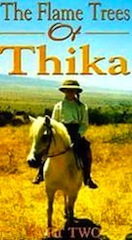
| |
Director: Roy Ward Baker, 1982
Elspeth and her unconventional parents decide to settle down in British East Africa and
begin a coffee plantation. This is a time of discovery for Elspeth, as she encounters the
incredible beauty and cruelty of nature, and new friendships with both Africans and
British expatriates. Eventually, however, the excitement of her life is disrupted by
the onset of the First World War and the changes it brings. Based on the 1959 memoir
by Elspeth Huxley.
© HBO Films
|
|
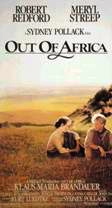
| |
Director: Sydney Pollack, 1985
The true story of Baroness Karen Blixen-Finecke, a Danish woman
who relocated to the British East Africa Protectorate (Kenya) with her husband
in 1914 to take charge of a large coffee plantation. Based on Blixen's 1937
autobiographical account written under the pen name "Isak Dineson." Out of Africa
won seven Academy Awards in 1986, including Best Picture.
© Universal
|
|
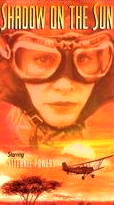
| |
Director: Tony Richardson, 1988
This television series depicts the remarkable life of Beryl Markham, a renowned aviatrix, author, and
adventurer. Raised by her father in Kenya, young Beryl hunted with Masai tribesmen, bred
racehorses, flew as a bush pilot, and repeatedly defied the constraining social and gender
norms of the British colonial establishment. Based on Markham's 1942 memoir West with
the Night.
© Starmaker Entertainment
|
|
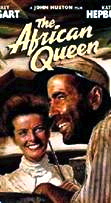
| |
Director: John Huston, 1951
This classic film starring Humphrey Bogart and Katherine Hepburn is set in German East Africa
(present-day Tanzania) at the start of the First World War. The story focuses on the
relationship that develops between a prim missionary (Hepburn) and the crotchety steamboat
captain (Bogart) hired to transport her to safety after the war breaks out. Based on the
1935 novel by C.S. Forester.
© Horizon Pictures
|
|
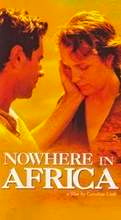
| |
Director: Caroline Link, 2001
In the late 1930s, a Jewish family, the Redlichs, reluctantly emigrate from Germany
to British East Africa to manage a farm. At first, not all members of the family
come to accept their new life in such an "uncivilized" society. However, with a return
to Germany impossible given the persecution of Jews, the Redlichs must make the
adjustment. They soon find themselves treated more humanely by Africans than they ever
were in the supposedly civilized Europe from which they fled. Based on the 1995 autobiographical novel by Stefanie Zweig.
© Sony Pictures
|
|
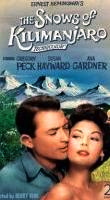
| |
Director: Henry King, 1952
As writer Harry Street lays gravely wounded from an African hunting accident he
feverishly reflects on what he perceives as his failures in love and writing.
Through his delirium he recalls his one true love Cynthia Green who he lost by
his obsession for roaming the world in search of stories for his novels. Based
on the classic 1936 short story by Ernest Hemingway.
© Twentieth Century Fox
|
|
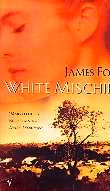
| |
Director: Michael Radford, 1988
Set in British East Africa (Kenya) during the 1940s, this film offers a fascinating
study of the decadence and moral bankruptcy of life in "Happy Valley," a colonial
enclave in the eastern highlands outside Nairobi. The plot revolves around a lovers'
triangle that ends in murder, but it also highlights the arrogance, idleness, and
debauchery of the colonial expatriates. Based on the 1987 novel by James Fox.
© Nelson Entertainment
|
|
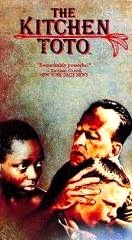
| |
Director: Harry Hook, 1988
Mwangi is a Kikuyu boy whose preacher father is murdered by Mau Mau rebels
in 1950. Soon afterward he goes to work as a house servant for a colonial police
officer and his wife and young son. When the rebels kidnap Mwangi and make
him swear allegiance to their cause, a potentially explosive situation arises.
A gripping story about one of the bloodiest episodes in the history of British
decolonization and the birth of modern Kenya.
© Warner Home Video
|
|
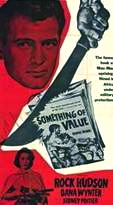
| |
Director: Richard Brooks, 1957
Peter, a Kenya settler boy, and Kimani, a Kikuyu, are childhood friends. After
his father is jailed for following tribal customs, Kimani joins the Mau Mau
rebellion. Kimani believes in the cause, but does not agree with the indiscriminate
killing of women, children, and those who will not join or support the rebels.
Peter, even after the deaths of his little sister and brother by the Mau Mau, still
believes that there is a chance for peaceful co-existence. Based on the 1955 novel
by Robert C. Ruark.
© MGM
|
|
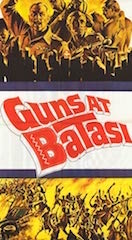
| |
Director: John Guillermin, 1964
Regimental Sergeant-Major Lauderdale is an old-school martinet assigned with other British NCOs and officers to a remote African outpost to train soldiers of a newly independent former colony (a thinly veiled Kenya). When a populist uprising overthrows the government, soldiers loyal to the new regime take over the barracks prompting a tense standoff with Lauderdale and his men. Released in 1964, at the height of decolonization, this film is a useful artifact of British feelings about the end of their empire.
© Twentieth Century Fox
|
|
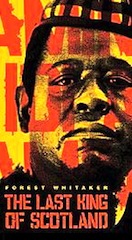
| |
Director: Kevin Macdonald, 2006
Nine years after Uganda gained its independence from Britain in 1962, a former
private in the King's African Rifles named Idi Amin seized power. This film is
a fictionalized version of the reign of Amin as seen through the eyes of Nicholas
Garrigan, a young Scottish doctor who quite accidentally becomes the dictator's
personal physician. A chilling portrait of Amin's erratic and murderous regime
as well as the trauma of postcolonial Africa in the wake of British rule.
Based on the 1998 novel by Giles Foden.
© Fox Searchlight
|
|
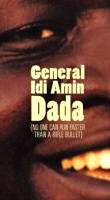
| |
Director: Barbet Schroeder, 1976
In this chilling yet darkly comic documentary, French director Barbet Schroeder
turned his camera on the infamous dictator of Uganda, revealing the dynamic, charming,
clownish, and dangerous man whose fanatical neuroses held an entire nation in their
grip. Made with the full support and participation of General Amin, the film consists of
a series of sit-down interviews and staged public appearances. Amin later denounced
the film after some unflattering narration was added before its release.
© Criterion
|
|
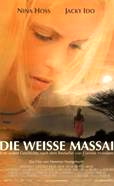
| |
Director: Hermine Huntgeburth, 2005
Carola, a Swiss women, is on vacation in Kenya when things take an unexpected turn and
she becomes infatuated with a Masai man. She decides to leave her boyfriend to
marry her new lover and remain in Africa. There, she has to adapt to the Masai way of
life as well as face up to her husband's attitude towards women and what he expects
from a wife. Based upon the 1995 autobiographical novel by Corinne Hofmann.
© Metropole Canada
|
|
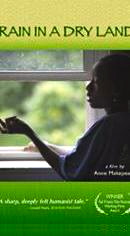
| |
Director: Anne Makepeace, 2006
In 2004, thirteen thousand Somali Bantu refugees realized their dream of coming to
America. They are now living in fifty cities across the country, becoming the
largest African group from a single community to settle in the United States at
one time. This documentary chronicles two years in the lives of two extended Somali
Bantu families as they leave behind a legacy of oppression in Africa to face the
challenges of living in a strange new land.
© Working Films
|
|
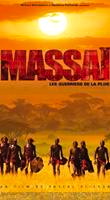
| |
Director: Pascal Plisson, 2004
This French film follows the lives of a group of young and inexperienced Masai warriors on a
search to bring back the mane of Vitchua, a mythical lion and incarnation of
the god of revenge. In doing this they believe they will put an end to the drought
that has cursed their land. As they press onward through the plains of
Kenya, the young warriors are at every moment confronted with danger, betrayal,
fear, and competition to become men.
© Universal
|
|
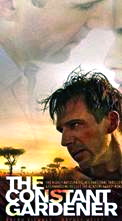
| |
Director: Fernando Meirelles, 2005
Justin Quayle, a British diplomat stationed in Nairobi, investigates the brutal murder of his
healthcare activist wife despite the wishes of his superiors that he rely upon
the official inquiry for answers. Instead, Quayle discovers a sinister conspiracy
between his government and the pharmaceutical industry to test experimental drugs on unsuspecting
Nairobi slum dwellers. Based on the best-selling 2001 novel by John Le Carré with scenes filmed in
Kibera, Nairobi's notorious slum and the largest in all of Africa.
© Universal
|
|
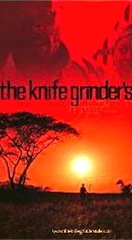
| |
Director: R.L Hooker, 2007
This short film tells the story of Ogwang, a countryside knife grinder who loses his son to
an angry mob in a Nairobi slum. Wanting to know the place and circumstances of his
son's death, Ogwang sets out on a journey to bridge the distance between love and
death in the face of violence. Based on a short story by award-winning Kenyan author
Yvonne Adhiambo Owuor.
© R.L. Hooker
|
|
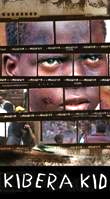
| |
Director: Nathan Collett, 2006
Otieno is a twelve-year old orphan living in Kibera, Nairobi's largest slum. He
lives with "The Razors," a gang of petty thieves. After
a theft gone bad, Otieno is forced to choose between saving an innocent man's life
and his loyalty to the Razors, the only family he knows. A compelling look at the
widespread poverty and violence that is a daily reality in much of urban East Africa.
© Hot Sun Films
|
|
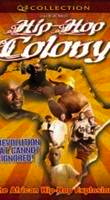
| |
Director: Michael Wanguhu, 2005
This documentary traces the unique development of hip hop music in Kenya. US influences
have combined with the traditional music of Kenya to create a new style, "Genge," that is extremely
popular throughout the country. The documentary intersperses concert footage and interviews
with musicians and producers. A revealing glimpse into how contemporary
East African culture is shaped and influenced.
© Emerge Media Film
|
|
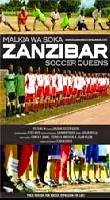
| |
Director: Florence Ayisi, 2007
Passion for soccer transcends gender boundaries and challenges the
traditional image of women in Zanzibar, a predominantly Muslim society. The
team on which this documentary focuses is the aptly named "Women Fighters."
Established in 1988 against the wishes of conservative religious leaders (who objected
to their attire), the club has prospered despite limited facilities and continued
opposition. Today the Women Fighters are able to play against and frequently defeat
their male counterparts.
© Iris Films UK
|
|

| |
Director: Bob Nyanja, 2007
In this original Kenyan comedy, Di is beautiful, intelligent, confident, and just the
tiniest bit spoiled. From their first meeting, Luther can see that nothing makes her happy,
especially the thought of spending her weekend with him. Yet when they are trapped together
in the ladies room on the 15th floor of a Nairobi office building, the two have no choice but
to make the best of their forced holiday together.
© Cinematic Solutions Ltd.
|
|

